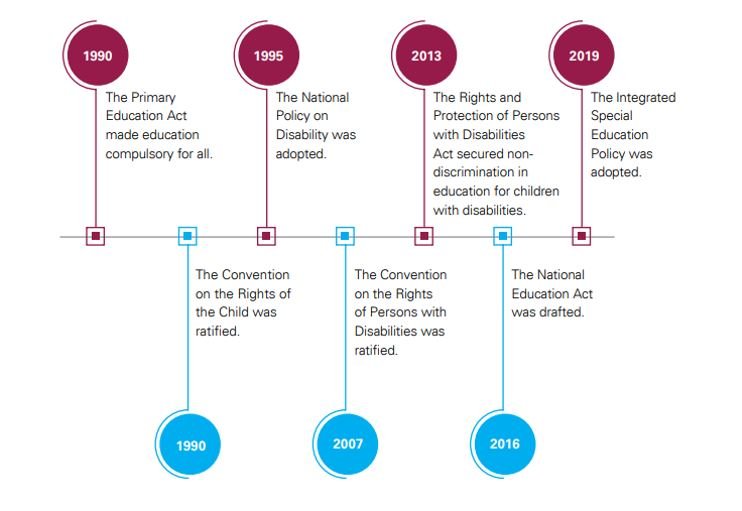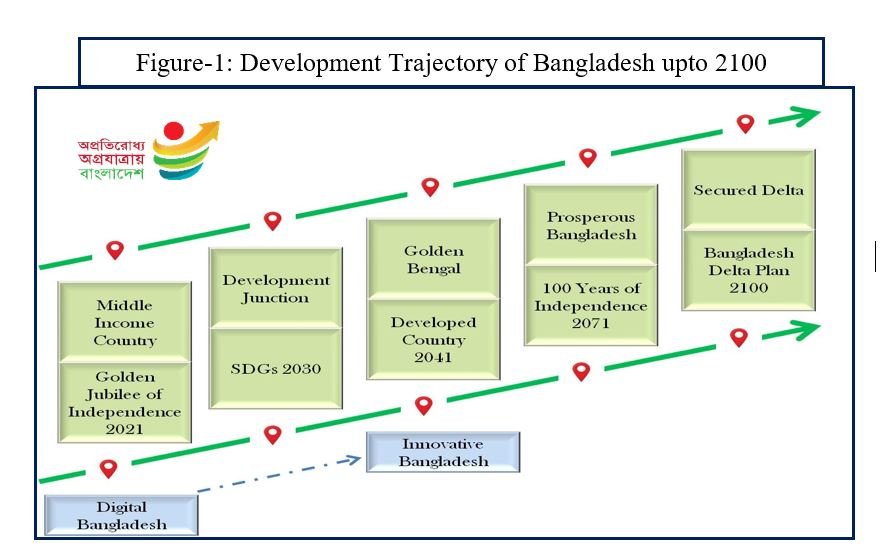Key Points:
- Bangladesh, a becon of inclusivity in separate settings for children with disabilities in education
- Over 130 million citizens can now access the internet
- National Financial Inclusion Strategy (NFIS), outlines 12 goals with 65 targets, addressing various aspects of financial inclusion
- Awami League has committed to ensuring the continuation of the democratic process
The term inclusivity for the Awami League-led Bangladesh government is somewhat broader. It not only encompasses the marginalized, but it also ensures equal access and opportunity for people of all economic classes, sexes, races and beliefs. To promote economic policies that allow all facets of society to grow, to promote educational policies that allow access to education for all.
You can also read: 4 Parties Apply to Form Election Alliance with Awami League
Under the watchful guidance of Prime Minister Sheikh Hasina, the government of Bangladesh has made robust, consistent, and impressive strides in inclusivity economic growth, and prosperity.
Resilience Through Forethought
On its inception, legendary American Secretary of State Henry Kissinger called Bangladesh a “basket case”. More than fifty years afterward, Bangladesh is a resilient, shining example to the world of how prudent policies can transform a nation and create miracles.
Inclusivity In Education

In the global pursuit of inclusive education, Bangladesh emerges as a front-runner, embodying a commitment to breaking down barriers for all learners. While acknowledging positive initiatives, there’s recognition that more can be done to remove the remaining obstacles hindering inclusivity.
In a world where a quarter of nations mandate separate settings for children with disabilities in education, this figure rises significantly in Latin America, the Caribbean, and Asia, surpassing 40 percent. In this context, Bangladesh stands out as a beacon of inclusivity, with laws that surpass global averages, as highlighted in a recent report.
UNESCO’s 2020 Global Education Monitoring Report underscores a global shortfall, revealing that fewer than 10 percent of countries have laws ensuring complete inclusion in education. Bangladesh not only meets this criterion but exceeds it, signaling a noteworthy commitment to providing quality education for all.
Inclusivity Through Economic Development
Economic inclusivity is crucial for prosperity and development for all. Without a widespread policy that covers every aspect of a nation’s society; economic inclusivity cannot be achieved. To this end, the government’s policies as still ongoing. The policy implementations have already started to bear fruit; with Bangladesh not only enjoying consistent economic growth and infrastructure developments, but a general increase in the standard of living of people of all walks of life.
Access To Internet To Promote Prosperity For All
Bangladesh’s journey is marked by significant milestones. Over 130 million citizens can now access the internet, reflecting the nation’s dedication to bridging the digital divide. Moreover, Mobile Financial Services (MFS) apps such as Bkash, Rocket, or Nagad have empowered the same number of people, showcasing a robust financial inclusion strategy.
2021-2026 National Financial Inclusion Strategy (NFIC)

A pivotal moment in Bangladesh’s journey is the unveiling of the 2021-2026 National Financial Inclusion Strategy (NFIS), a testament to the government’s commitment to fostering social cohesion through inclusive financial practices. The NFIS outlines 12 goals with 65 targets, addressing various aspects of financial inclusion. From increasing financial deepening and promoting literacy to transforming informal sectors and catalyzing finance for affordable housing, the strategy encompasses a comprehensive vision.
NFIC And Its Focus
The NFIS’s specific targets resonate with the government’s commitment to inclusivity. Implementing e-KYC for all types of financial accounts, revisiting KYC requirements for specific enterprises, and ensuring access to regulated financial services for various demographic segments underline Bangladesh’s dedication to a more inclusive financial landscape.
Beyond the financial sphere, the NFIS aligns with broader socio-economic goals, including job creation, poverty reduction, and improvements in agriculture productivity and food security. The strategy places a significant emphasis on increasing the number of women entrepreneurs, micro-insurance, and micro-pension policies, contributing to a more inclusive and resilient society.
Broder Goal For Greater Reach
As Bangladesh sets ambitious targets, it simultaneously unveils a detailed plan of action. The strategy not only aims to increase the number of financial services but also emphasizes the importance of education and awareness. This multifaceted approach includes financial literacy programs, counseling services, and initiatives tailored to specific demographic groups, such as youth, the physically challenged, and Bangladeshi overseas migrants.
Adaptability
In face of challenges, the government ahs shown great adaptability. The recent increase in the minimum wage for RMG workers shows the government’s commitment to inclusive labor policies. It highlights the dedication in not only protecting the rights of labors, but also ensure stability and prosperity for all.
Digital Bangladesh And Beyond
In the realm of digital presence, Bangladesh envisions a future where financial inclusion extends beyond traditional services. From increasing the number of financial inclusion websites and blogs to fostering collaborations and networks, the nation is actively shaping a digital landscape that complements its inclusive policies.
Inclusivity in Democracy
As the 12th National Election Draws nearer, the government has shown its dedication in creating an inclusive atmosphere for all. In a rare and unparallel display, Prime Minister Sheikh Hasina herself reassured leaders of Trinamool BNP of her commitment to a free and fair election. The fact that almost all major parties except BNP-Jamaat are committed to contesting the upcoming election shows the level of dedication Awami League has to ensuring the continuation of the democratic process.
Election and Beyond
Bangladesh’s trajectory towards inclusive development is a narrative of resilience, progress, and commitment. As the nation navigates the complex interplay of inclusivity in education and financial sectors, it not only meets global standards but sets a positive example for others to follow. As the 12th National Election draws nearer, it is crucial that voters and stakeholders take not of the current government’s commitment and dedication to prosperity, stability and inclusivity for all.


